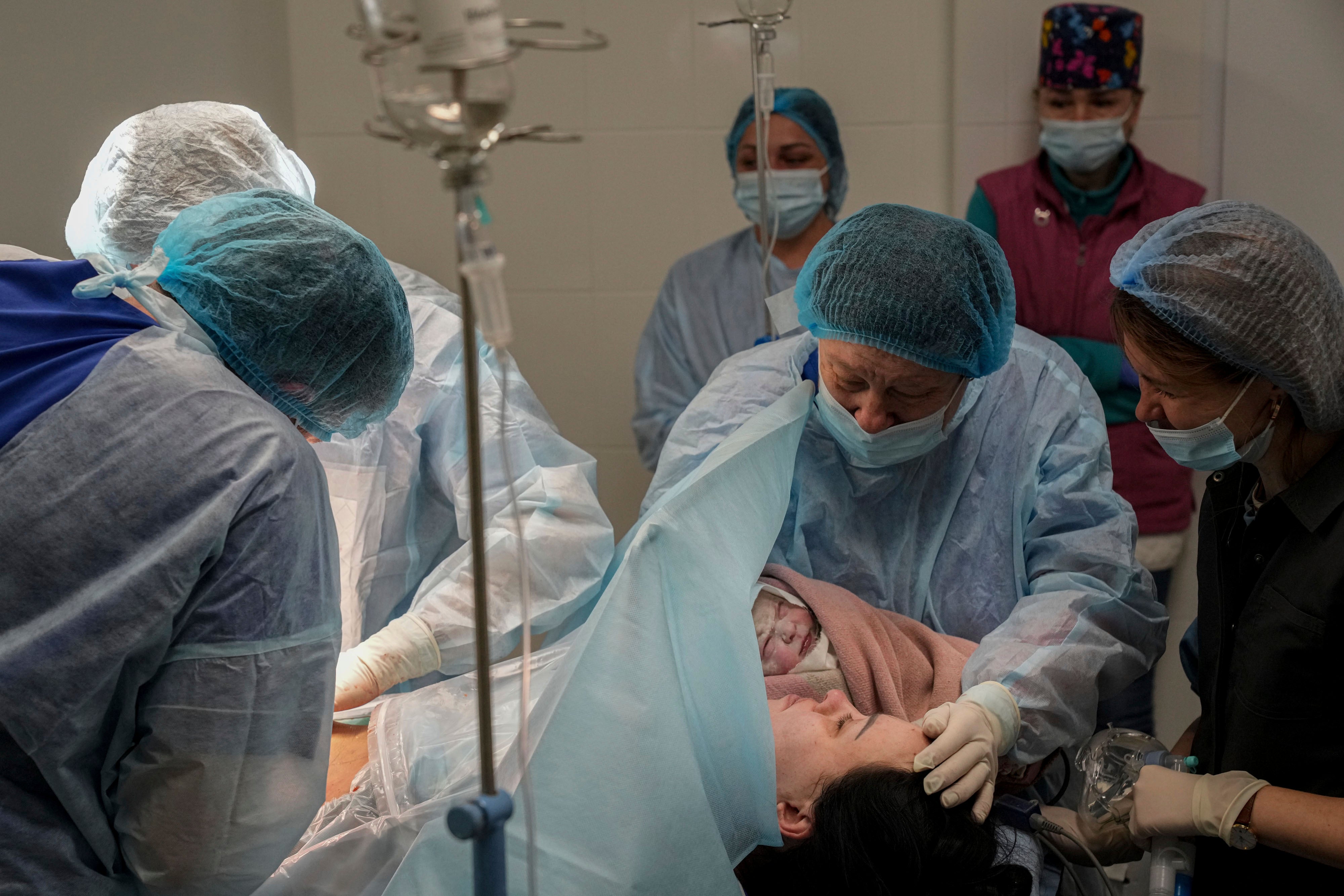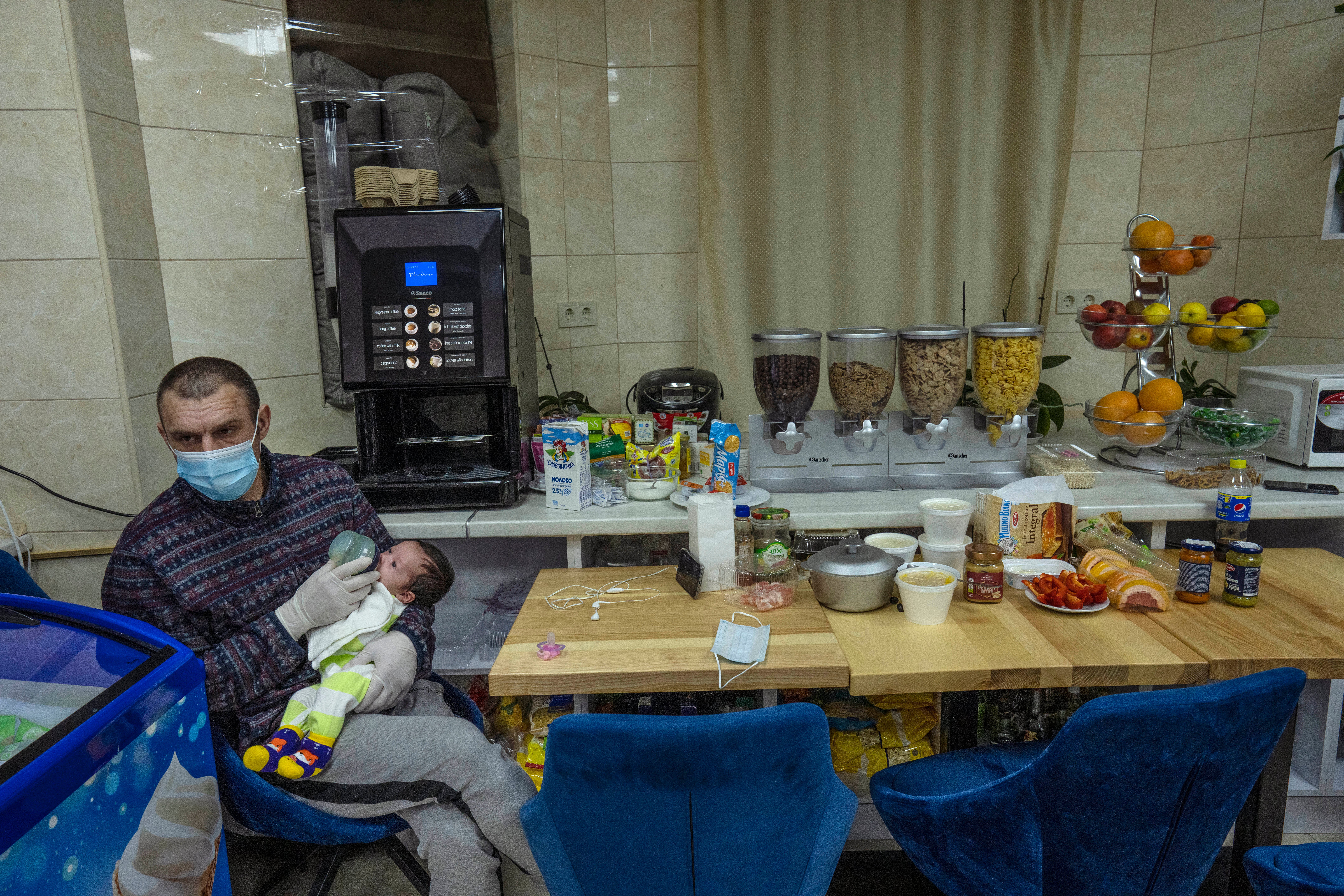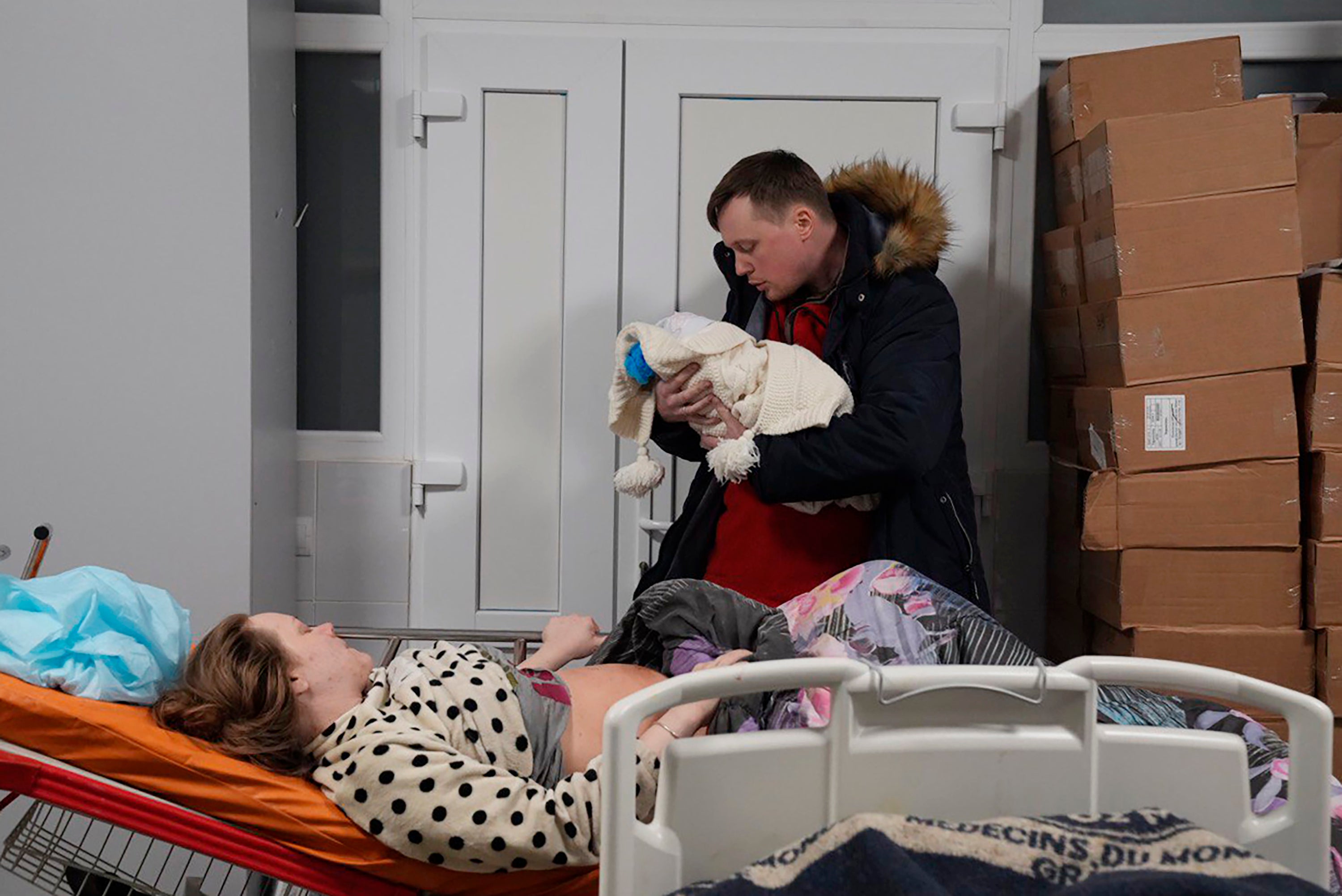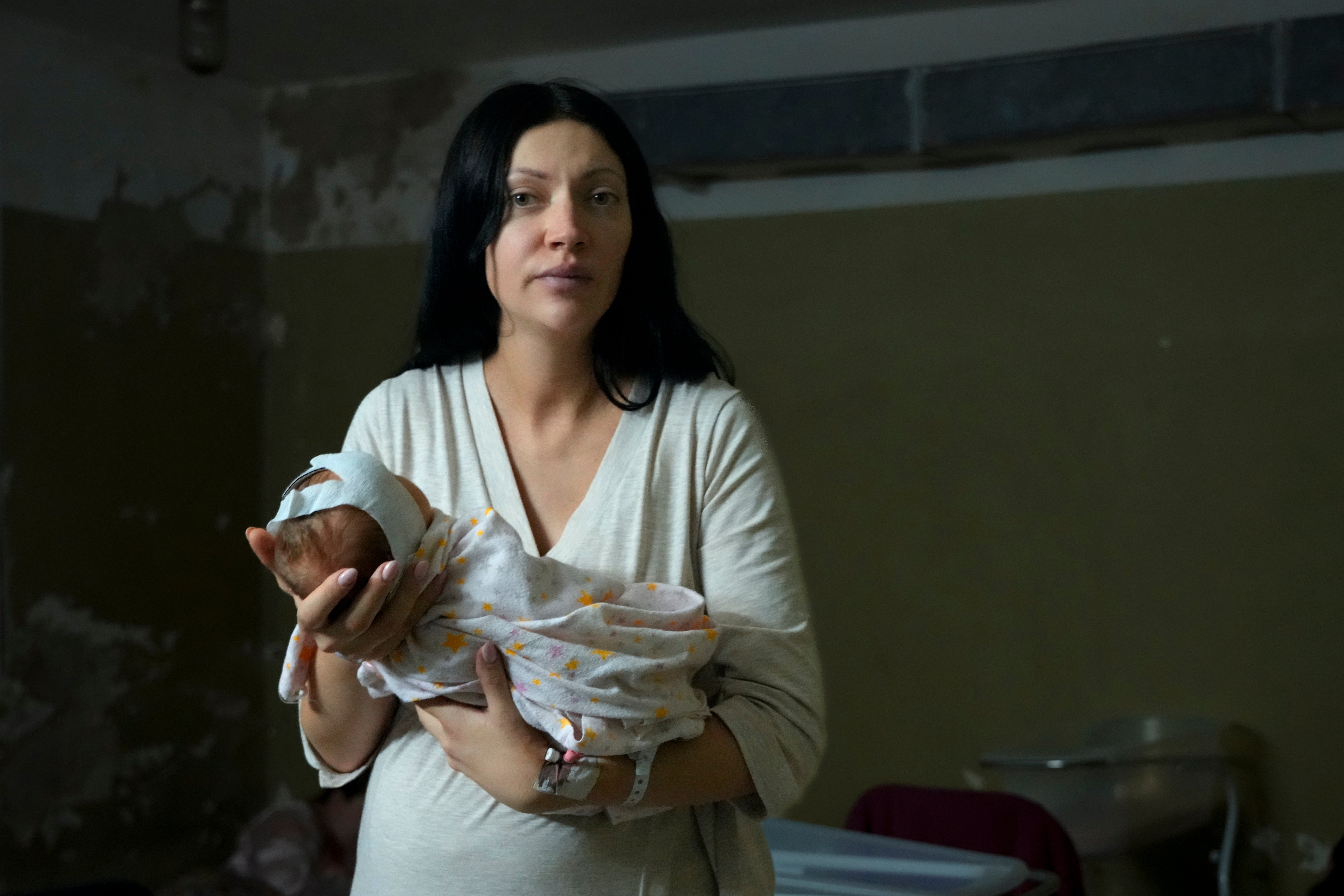‘He is a child of war’: Pregnant women endure harrowing ordeal of giving birth amid chaos in Ukraine
The war in Ukraine poses immediate and long-term risks to mothers and newborns

Your support helps us to tell the story
From reproductive rights to climate change to Big Tech, The Independent is on the ground when the story is developing. Whether it's investigating the financials of Elon Musk's pro-Trump PAC or producing our latest documentary, 'The A Word', which shines a light on the American women fighting for reproductive rights, we know how important it is to parse out the facts from the messaging.
At such a critical moment in US history, we need reporters on the ground. Your donation allows us to keep sending journalists to speak to both sides of the story.
The Independent is trusted by Americans across the entire political spectrum. And unlike many other quality news outlets, we choose not to lock Americans out of our reporting and analysis with paywalls. We believe quality journalism should be available to everyone, paid for by those who can afford it.
Your support makes all the difference.Before the war, Alina Shynkar’s gynaecologist advised her to avoid stress during her pregnancy, suggesting she spend time “just watching cartoons and being silly.” It was simple enough advice, but not so easy to follow after air raid sirens wailed, artillery booms rattled windows and vicious street fighting broke out a few miles away from her maternity hospital.
Then, keeping calm for her baby became Shynkar’s quiet, personal battle in the Ukraine war. She checked into Maternity Hospital No. 5 in the capital, Kyiv, before the war began in late February for bed rest because of a risk of preterm labour, only to witness the hospital unravel into a chaotic, panicked state weeks later.
“The girls were under so much stress they started to deliver” prematurely, she said. Doctors in her hospital moved frightened pregnant women, some of them already in labour, in and out of a bomb shelter multiple times a day. Some were crying and some were bleeding.
“They were scared,” Shynkar recalled. “It was hard to see.”
The Russian assault on Ukraine has been a nightmare for expectant mothers, particularly in cities like Mariupol, Kharkiv and Chernihiv that have been under almost constant bombardment from the beginning of the war.
In the besieged city of Mariupol, in southern Ukraine, last month, Russian artillery struck a maternity hospital, resulting in the death of a pregnant woman and wounding a number of others, according to Ukrainian authorities.
Women in war zones throughout the country have been forced to give birth in cold, decrepit basements or subway stations crowded with people cowering from shelling, and without electricity, running water or midwives to assist them.

And the recent reprieve as Russian forces pulled back won’t help all that much in many locations. As of late March, Russian missiles, bombs and artillery had destroyed at least 23 hospitals and health clinics.
Even those pregnant women fortunate enough to escape the war-torn areas are deeply stressed, whether racing in and out of shelters or enduring arduous and perilous journeys to the relative safety of western Ukraine or to neighbouring European countries.
An estimated 265,000 Ukrainian women were pregnant when the war broke out, according to the United Nations Population Fund, the organization’s sexual and reproductive health agency. About 80,000 births are expected in the next three months.
The war poses immediate and long-term risks to mothers, fathers and newborns. Among them are premature births, which can lead to a host of complications immediately and later in life.
“Prematurity because of the conditions of the war sets the baby up for death or for complications for the rest of his life,” said Dr Jeanne Conry, president of the International Federation of Gynecology and Obstetrics. While data is not available yet, she said that doctors in Ukraine were reporting an increase in premature babies, who are more likely to have respiratory, neurological and digestive problems later.
Conry said a lack of access to medication to prevent postpartum haemorrhage could result in an increase in deaths of mothers. Babies are at risk, she said, because physicians might not have immediate access to the necessary equipment to resuscitate them, and they have only moments to catch their first breath.

When an air raid siren wailed one recent day at the hospital, the stairway filled with women from the maternity ward clutching their bellies and shuffling down to the shelter, a warren of low-ceilinged corridors and storage rooms. One room was converted into a makeshift post-operation observation room and neonatal site. Another, still cluttered with filing cabinets, became a birthing room. Women rested on mats on the floor.
Dr. Olena Yarushchuk, the deputy chief doctor at Maternity Hospital No. 5, directed the women to benches along the walls, where they sat in near silence in the dim space, waiting the few minutes for the imminent danger to pass.
Yarushchuk said she had made video calls to assist women giving birth in the basements of apartment buildings in the Kyiv suburb of Bucha, a few dozen miles away but, at the time, cut off from the capital by fighting.
“Our work has changed,” she said.
Yulia Sobchenko, 27, said she went into labour around midnight 20 March and took an ambulance to the hospital. But she was delayed by Ukrainian soldiers at checkpoints who, fearful of saboteurs, insisted on opening the ambulance door to verify that it was a woman about to give birth.
Her child was delivered at 2:55 a.m., and within two hours, she was ushered into the basement because of an air raid alert.
“Me in my sleeping shirt and with a cloth between my legs and a tiny baby just after giving birth, and my husband with all our bags, had to go to the basement,” she said.
Her son, Mykhailo, was healthy and weighed 6 pounds, 3 ounces at birth, she said, and “is a child of war.”
After the birth, these families face other troubles. New mothers who recently left Maternity Hospital No. 5 have said they are unable to breastfeed, something Yarushchuk attributed to stress.

Finding calm was the strategy for Shynkar, who worked as an event organizer before the war. Her maternity hospital in Kyiv has allowed women, their husbands and children to check-in three weeks before their due dates to prevent them from getting separated from the medical facility by the shifting front lines of the war.
Speaking from her hospital room a few days before she gave birth 25 March, she beamed with a broad smile and seemed so calm as to be almost unaware of the swirl of lethal violence just outside. She said she never watched or read any news of the war.
“I’m trying to focus on the baby,” she said. “Can I help fight the war? I want to, but I cannot, not now. But I cannot panic,” she said. “I can keep myself safe. That is what I can do.”
Shynkar gave birth to a daughter, Adeline.
“It was a natural birth in a very pleasant, intimate setting,” she said of her delivery at the hospital. “My husband was present at the birth and cut the umbilical cord. To be honest, I have no idea if there were air raid sirens because I was completely in the process.”
It was a small personal victory amid a much larger battle raging all around her.
For herself and for her country, she gave her baby the middle name Victoria.
This article originally appeared in The New York Times.
Join our commenting forum
Join thought-provoking conversations, follow other Independent readers and see their replies
Comments